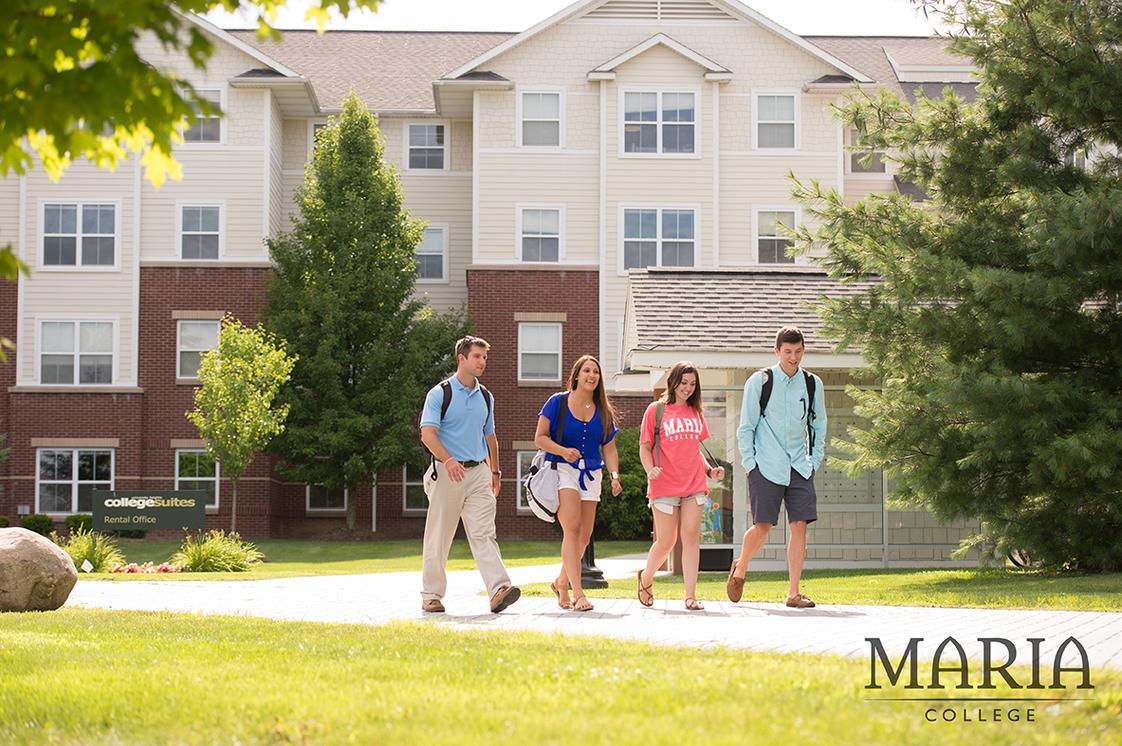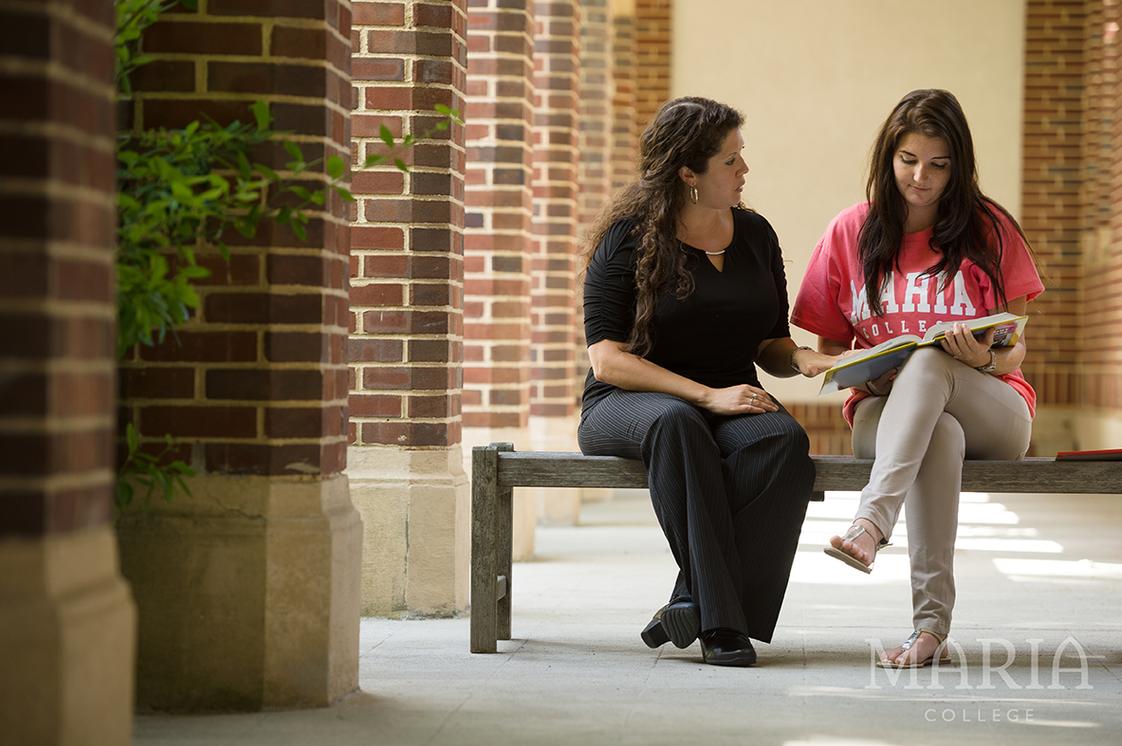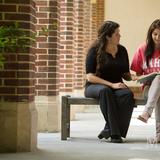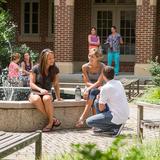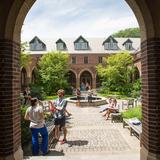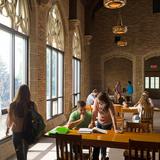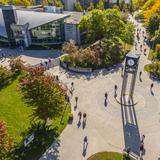- Founded in 1958, Maria College is one of 16 colleges and universities in the United States sponsored by the Sisters of Mercy of the Americas. The private, co-educational, Catholic college in Albany serves approximately 800 students in a variety of degree and certificate programs including liberal arts, healthcare management, nursing, occupational therapy assistant, and health and occupational sciences. Maria College prepares students for meaningful careers in healthcare and service so they can make a difference in the lives of others.
School Highlights
Maria College of Albany serves 1,033 students (24% of students are full-time).
The college's student:teacher ratio of 10:1 is lower than the state community college average of 13:1.
Minority enrollment is 58% of the student body (majority Black), which is less than the state average of 62%.
Quick Stats (2025)
- Enrollment: 1,033 students
- Private-state tuition: $11,130
- Acceptance Rate: 37%
- Student:teacher ratio: 10:1
- Minority enrollment: 58%
- Source: Integrated Postsecondary Education Data System (IPEDS)
Top Rankings
Maria College of Albany ranks among the top 20% of public schools in New York for:
School Overview
The teacher population of 106 teachers has stayed relatively flat over five years.
Maria College of Albany
(NY) Community College Avg.
Carnegie Classification
Special Focus Four-Year: Other Health Professions Schools
Baccalaureate/Associate's Colleges: Mixed Baccalaureate/Associate's
Institution Level
Four or more years
At least 2 but less than 4 years
Institution Control
Private not-for-profit
Private not-for-profit
Total Faculty
106 staff
158 staff
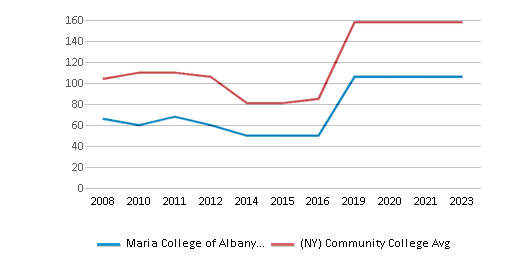
School Calendar
Student Body
The student population of Maria College of Albany has grown by 29% over five years.
The student:teacher ratio of 10:1 has increased from 8:1 over five years.
The Maria College of Albany diversity score of 0.79 is more than the state average of 0.76. The school's diversity has grown by 23% over five years.
Total Enrollment
1,033 students
746 students
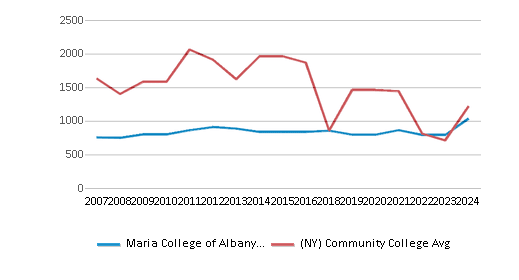
Student : Teacher Ratio
10:1
13:1
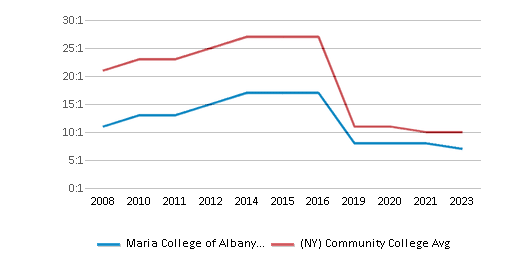
# Full-Time Students
244 students
519 students
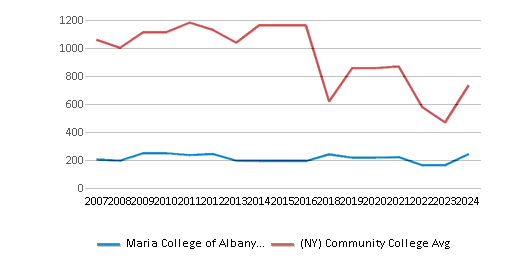
# Part-Time Students
789 students
514 students
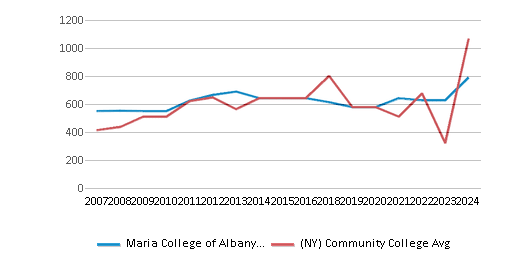
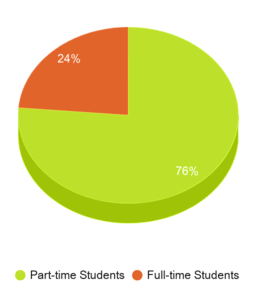
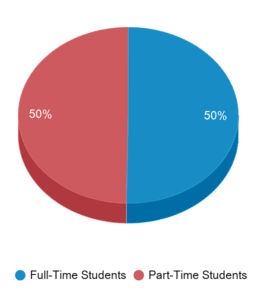
# Enrollment Undergraduate
968 students
357 students
# Full-Time Undergraduate Students
200 students
502 students
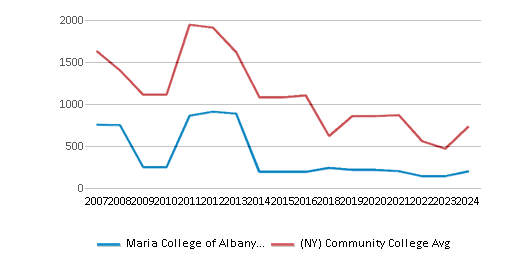
# Full-Time Graduate Students
44 students
44 students
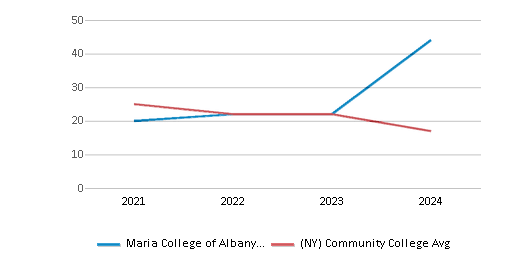
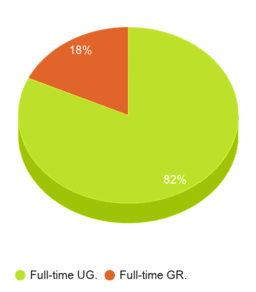
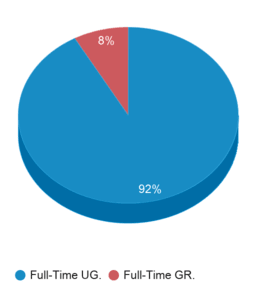
# Part-Time Undergraduate Students
768 students
528 students
# Part-Time Graduate Students
21 students
41 students
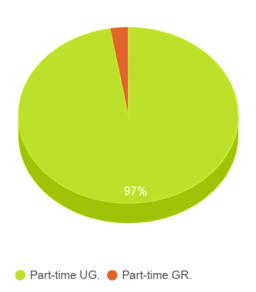
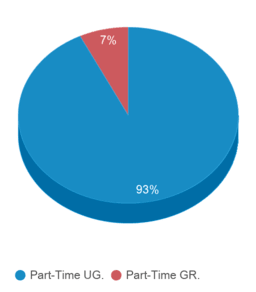
Total Dormitory Capacity
n/a
382 students
% American Indian/Alaskan
n/a
n/a
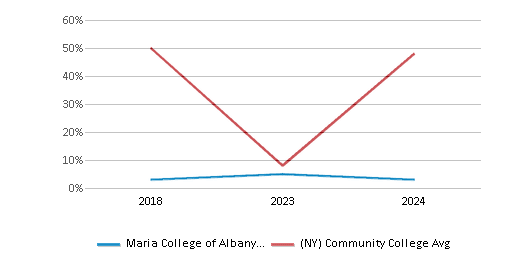
% Asian
4%
8%
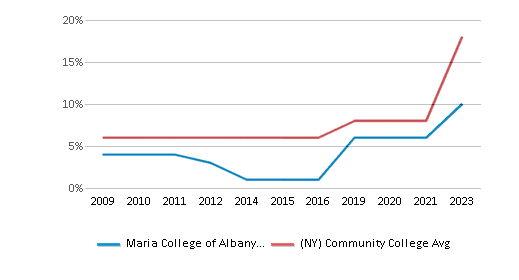
% Hispanic
7%
23%
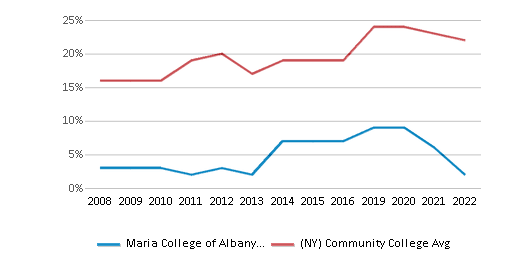
% Black
15%
18%
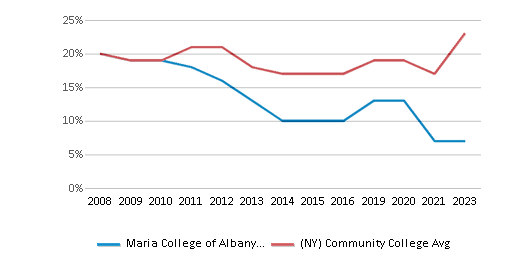
% White
42%
38%
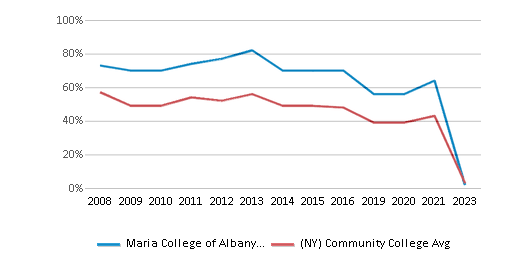
% Hawaiian
4%
2%
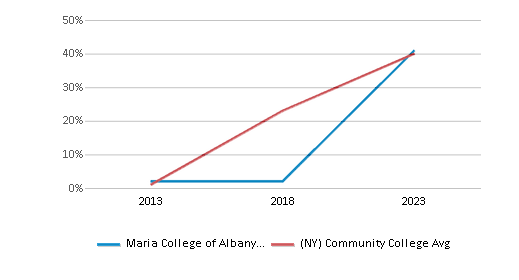
% Two or more races
3%
3%
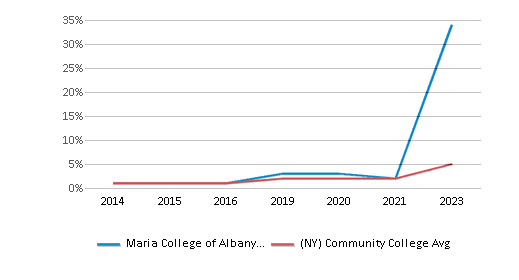
% Non Resident races
3%
3%
% Unknown races
22%
5%
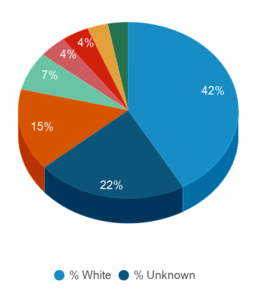
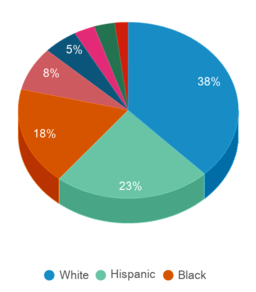
Diversity Score
0.79
0.76
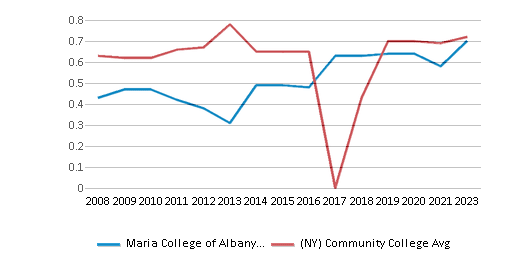
College Completion Rate (Students who graduate in less than 4 years)
29%
28%
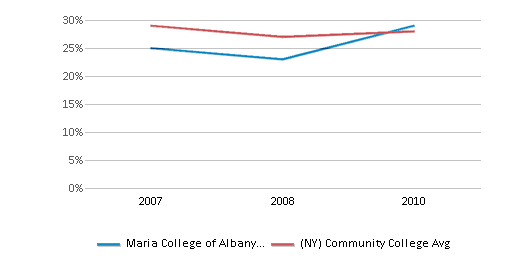
College Completion Rate (Students who graduate in 4 years or more than 4 years)
0.3571%
0.3957%
Average Graduate Earnings (10 Years)
$43,000
$35,200
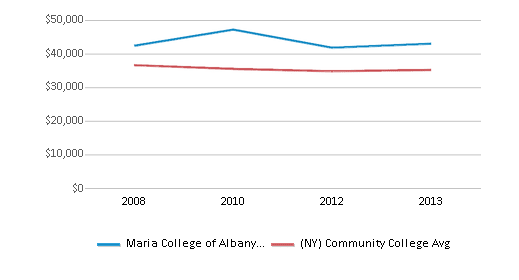
Tuition and Acceptance Rate
The private state tuition of $11,130 is less than the state average of $16,426. The private state tuition has declined by 28% over four years.
Private State Tuition Fees
$11,130
$16,426
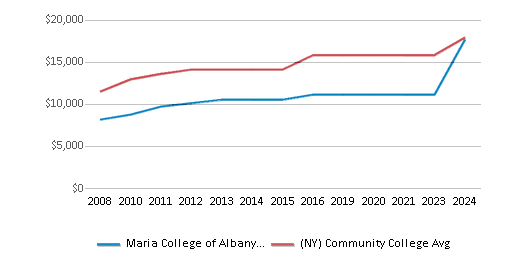
% Students Receiving Some Financial Aid
88%
88%
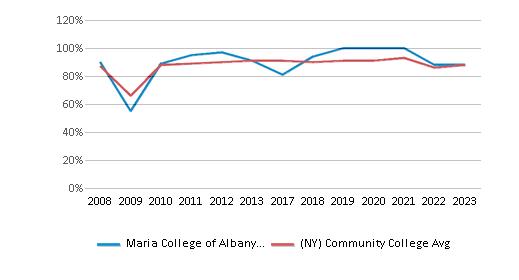
Median Debt for Graduates
$20,000
$13,841
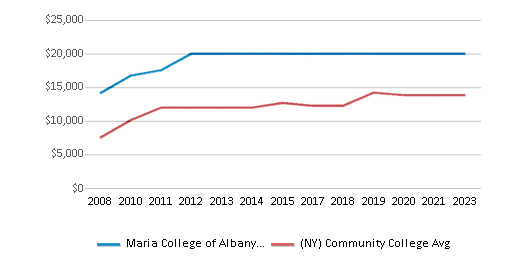
Median Debt for Dropouts
$9,500
$5,500
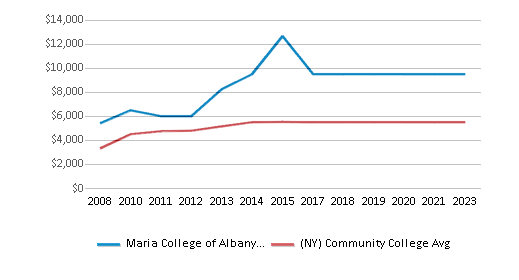
Acceptance Rate
37%
74%
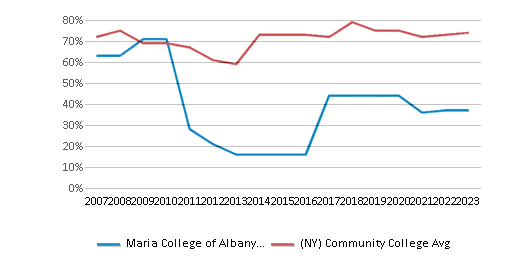
SAT Total Avg.
1,269
1,465
SAT Reading
419
475
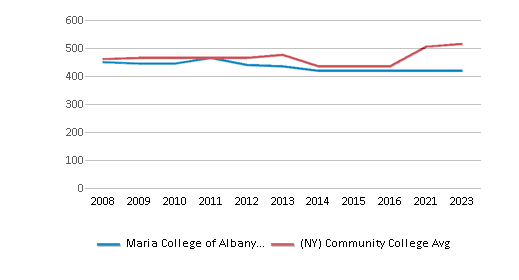
SAT Math
440
505
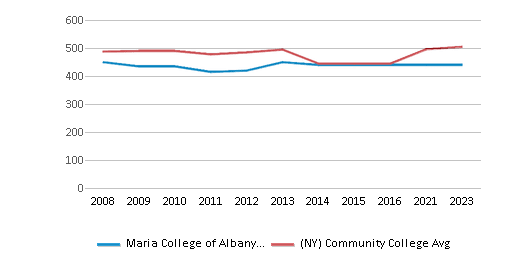
SAT Writing
410
485
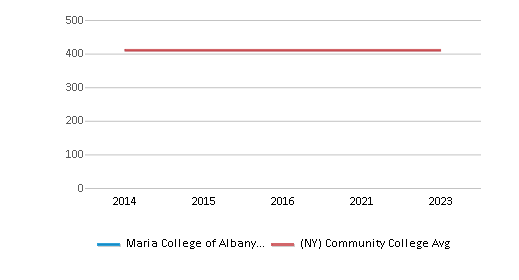
ACT Total Avg.
20
20
ACT Composite
20
20
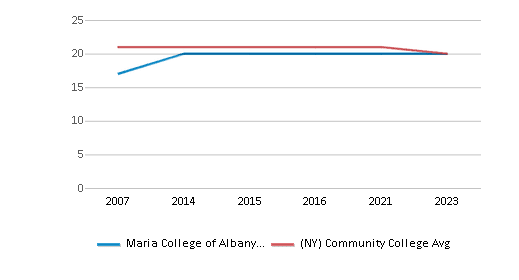
ACT English
n/a
18
ACT Math
n/a
20
Source: 2024 (or latest year available) Integrated Postsecondary Education Data System (IPEDS) , School Administrators
School Notes
- Founded in 1958, Maria College is one of 16 colleges and universities in the United States sponsored by the Sisters of Mercy of the Americas. The private, co-educational, Catholic college in Albany serves approximately 800 students in a variety of degree and certificate programs including liberal arts, healthcare management, nursing, occupational therapy assistant, and health and occupational sciences. Maria College prepares students for meaningful careers in healthcare and service so they can make a difference in the lives of others.
Frequently Asked Questions
How much does Maria College of Albany cost?
Maria College of Albany's private state tuition is approximately $11,130.
What schools are Maria College of Albany often compared to?
Maria College of Albanyis often viewed alongside schools like CUNY Kingsborough Community College by visitors of our site.
What is the acceptance rate of Maria College of Albany?
The acceptance rate of Maria College of Albany is 37%, which is lower than the state average of 74%. Maria College of Albany's acceptance rate is ranked among the top community colleges in New York with low acceptance rates.
What is Maria College of Albany's ranking?
Maria College of Albany ranks among the top 20% of community college in New York for: Lowest acceptance rates and Diversity in US community colleges.
In what neighborhood is Maria College of Albany located?
Maria College of Albany is located in the Buckingham Lake neighborhood of Albany, NY. There are 1 other community '.college.' located in Buckingham Lake.
Recent Articles

Obtaining Your Bachelor's Degree at a Community College
Explore the evolving landscape of community colleges offering bachelor's degrees, addressing affordability, accessibility, and workforce needs.

A to Z of Community College Certificates and Courses
From business and healthcare to technology and skilled trades, the article showcases the breadth of options available to students seeking to enhance their knowledge, develop new skills, or pursue career advancement.

What is a Community College?
This comprehensive guide explains what a community college is, its history, and its role in higher education. It covers the types of programs offered, differences from four-year colleges, benefits of attending, and important considerations for prospective students, providing valuable insights for those exploring educational options.

